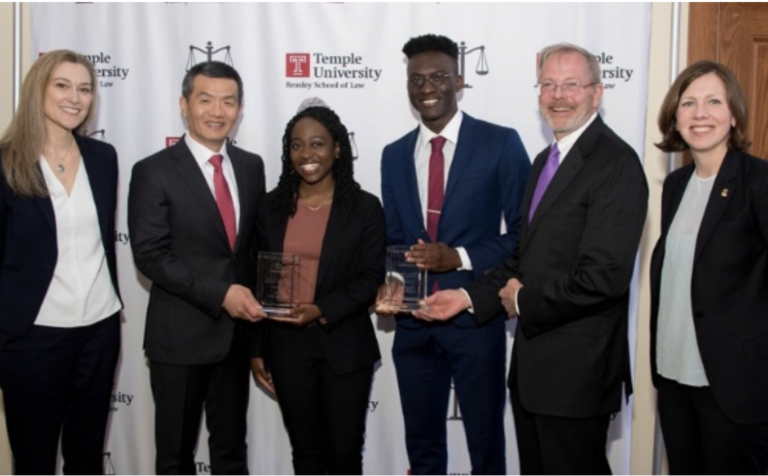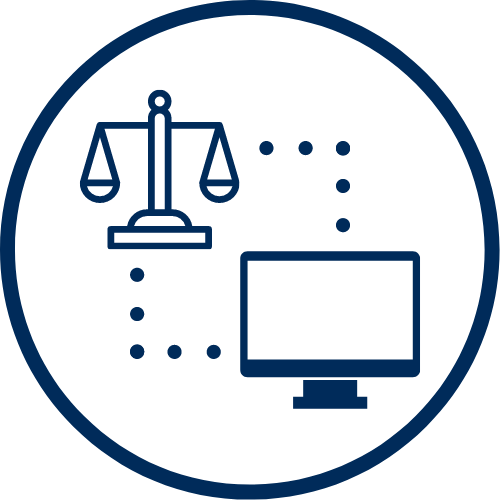Sovereign Identity Crisis: State, Self, and Collective in a Digital Age – November 17, 2022
Sovereign Identity Crisis: State, Self, and Collective in a Digital Age Event
Hosted by iLIT and the Temple Law Review
THURSDAY, NOVEMBER 17, 2022
9:00 AM – 5:00 PM EST
In-person: Shusterman Hall, philadelphia PA
ONLINE: Zoom
Join the Temple University Institute for Law, Innovation & Technology (iLIT) and the Temple Law Review (TLR) for a joint symposium: Sovereign Identity Crisis. The symposium will explore different dimensions of sovereignty in a digital age, from the territorial integrity of states to the inner sanctum of bodily integrity and freedom of thought and will examine competing priorities, promises and players in emerging governing agendas for the future of technology.
Participation in the event is free of charge. For participants seeking U.S. Continuing Legal Education credit for their participation, varying fees apply for general admission, students, alumni, and public interest lawyers. More information is provided on the registration page.
pROGRAM DESCRIPTION
All times are Philadelphia local time (EST). Online participants will receive a Zoom link the day of the event.
9:00 AM – Welcome
Welcome Remarks, Program Overview and Keynote Introduction – Laura Bingham, iLIT Executive Director
9:30 AM – Keynote
Nanjala Nyabola, Author, Political Analyst and Activist
10:00 AM – Panel 1: The Sovereign State
Beth Simmons, Andrea Mitchell University Professor in Law, Political Science and Business Ethics, University of Pennsylvania
Laura DeNardis, Professor and endowed Chair in Tech, Ethics, and Society, Georgetown University
Marguerite C. Walter, Attorney-Adviser, Political-Military Affairs, Office of the Legal Adviser
Rachel Hulvey, Ph.D. Candidate, Department of Political Science, University of Pennsylvania
Moderator: Olufunmilayo (Funmi) Arewa, Murray H. Shusterman Professor of Transactional and Business Law, Temple University
11:15 AM – Coffee/Tea Break
11:30 AM – Virtual Keynote
E. Tendayi Achiume, Inaugural Alicia Miñana Professor of Law, UCLA Law; United Nations Special Rapporteur on Contemporary Forms of Racism, Racial Discrimination, Xenophobia and Related Intolerance
12:00 PM – Lunch
1:00 PM – Panel 2: Sovereignty, Communities, and Collectives
Asaf Lubin, Associate Professor, Indiana University Maurer School of Law
J. Nathan Matias, Assistant Professor, Cornell University Departments of Communications and Information Science; Founder and Director, Citizens and Technology Lab (CAT Lab)
Dragana Kaurin, Executive Director and Founder, Localization Lab
John Newman, Deputy Director, Bureau of Competition, Federal Trade Commission and Professor, University of Miami School of Law
Moderator: Salil Mehra, Charles Klein Professor of Law and Government, Temple University
2:15 PM – Break
2:30 PM – Panel 3: The Sovereign Individual
Cynthia Conti-Cook, Technology Fellow, Gender, Racial, and Ethnic Justice, Ford Foundation
Juan Ortiz Freuler, Researcher and Advocate, Berkman Klein Center for Internet and Society, Harvard Law School; Co-initiator, Non-Aligned Tech Movement
Siena Anstis, Senior Legal Advisor, Citizen Lab, University of Toronto Munk School of Global Affairs & Public Policy
Steven Feldstein, Author and Senior Fellow, Democracy, Conflict and Governance, Carnegie Endowment for International Peace
Moderator: Caroline DeCell, Knight First Amendment Institute, Columbia University
3:30 PM – Concluding Reflections
Marina Kaljurand, Member of European Parliament; former Estonian Minister of Foreign Affairs
4:00 PM – Closing and Reception
Rachel Rebouché, Dean and James E. Beasley Professor of Law
About the Speakers
Learn more about the event speakers below. Additional biographies will be added shortly.
event background
Sovereigns and sovereignty are old ideas whose definition is increasingly vexed and ambiguous against an unprecedented expanse of digital information. Widespread disenchantment with an unregulated Internet has led states like China to champion the concept of cyber (or internet) sovereignty (wangluo zhuquan) that other states receiving Chinese assistance in constructing digital networks have begun to embrace as well.
State institutions and the operations of government are likewise undergoing digital transformations. A 2020 study commissioned by the Administrative Conference of the United States found that nearly half of all U.S. federal agencies operated artificial intelligence (AI) and machine learning (ML) tools across 157 different use cases. U.S. citizenship can be stripped based on an algorithmic trigger in a fraud detection program, and yet constitutional doctrine extols the centrality of “sovereign” citizenship to maintaining a limited government that exists through the consent of the governed.
Meanwhile, the concentration of awesome power in ungoverned spaces only mounts as states and firms struggle over dominance in a multipolar global order. Some of the world’s most powerful democracies utilize repressive digital tools flowing across borders while simultaneously launching digital democracy promotion and anti-discrimination efforts. Whereas the experiences of climate change induced starvation, conflict, invasive law enforcement surveillance, and authoritarian repression are felt by bodies and minds, rights and security discussions too often prioritize the protection of data as an abstract proxy for safeguarding and promoting substantive human rights.
Considering these dynamics and other interconnected geopolitical trends, participants will address pivotal questions currently confronting all stakeholders in 21st Century digital societies:
- In a world of extraterritorial “virtual” borders, existential climate threats to entire nations, and State-sponsored transborder cyber operations in times of war and peace, what will become of State sovereignty in a digital age?
- Will sovereignty only be the province of States? Can global technology companies acquire and exercise a new form of sovereignty?
- How are peoples and communities defined, organized, and engaged in relation to digital information, classification, and platforms?
- How are concepts of individual sovereignty, bodily integrity, and inviolability of human dignity impacted by surveillance and manipulation of information?
- How should decisionmakers confront the suffering of vulnerable populations and disparate human rights harms of experimental technologies? Who is accountable for those harms? Who decides?






















